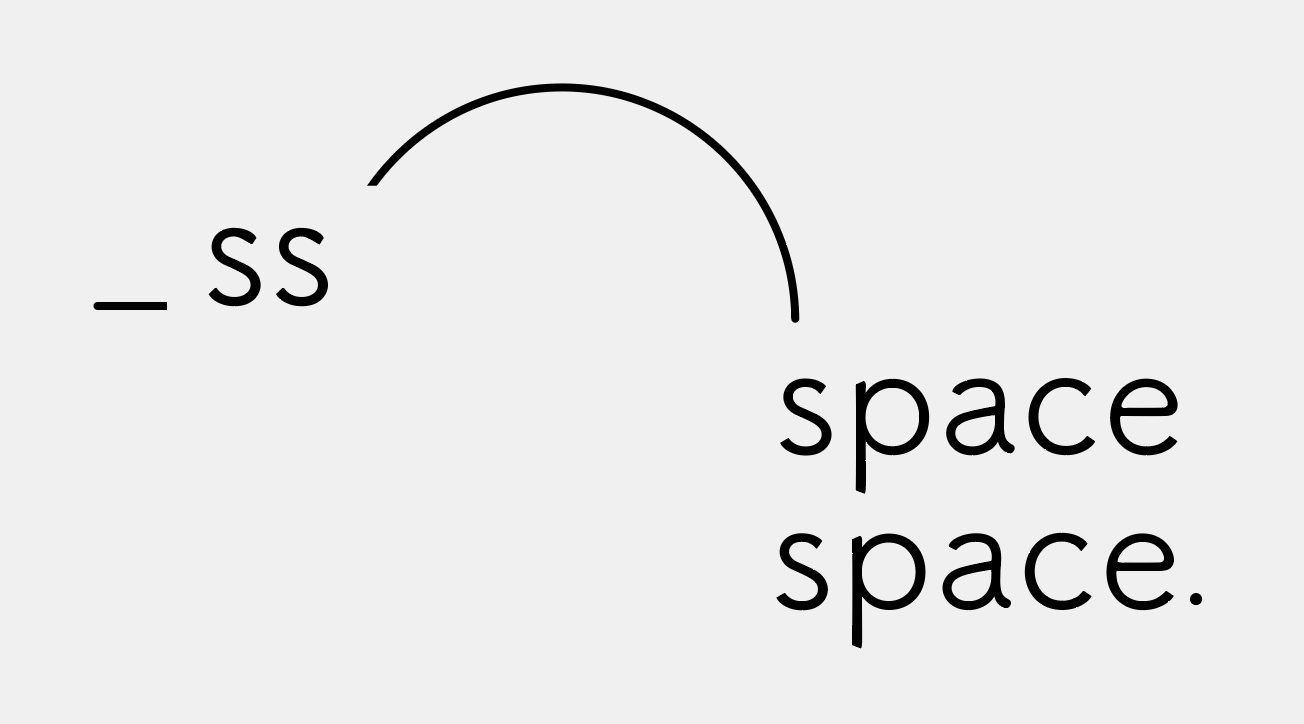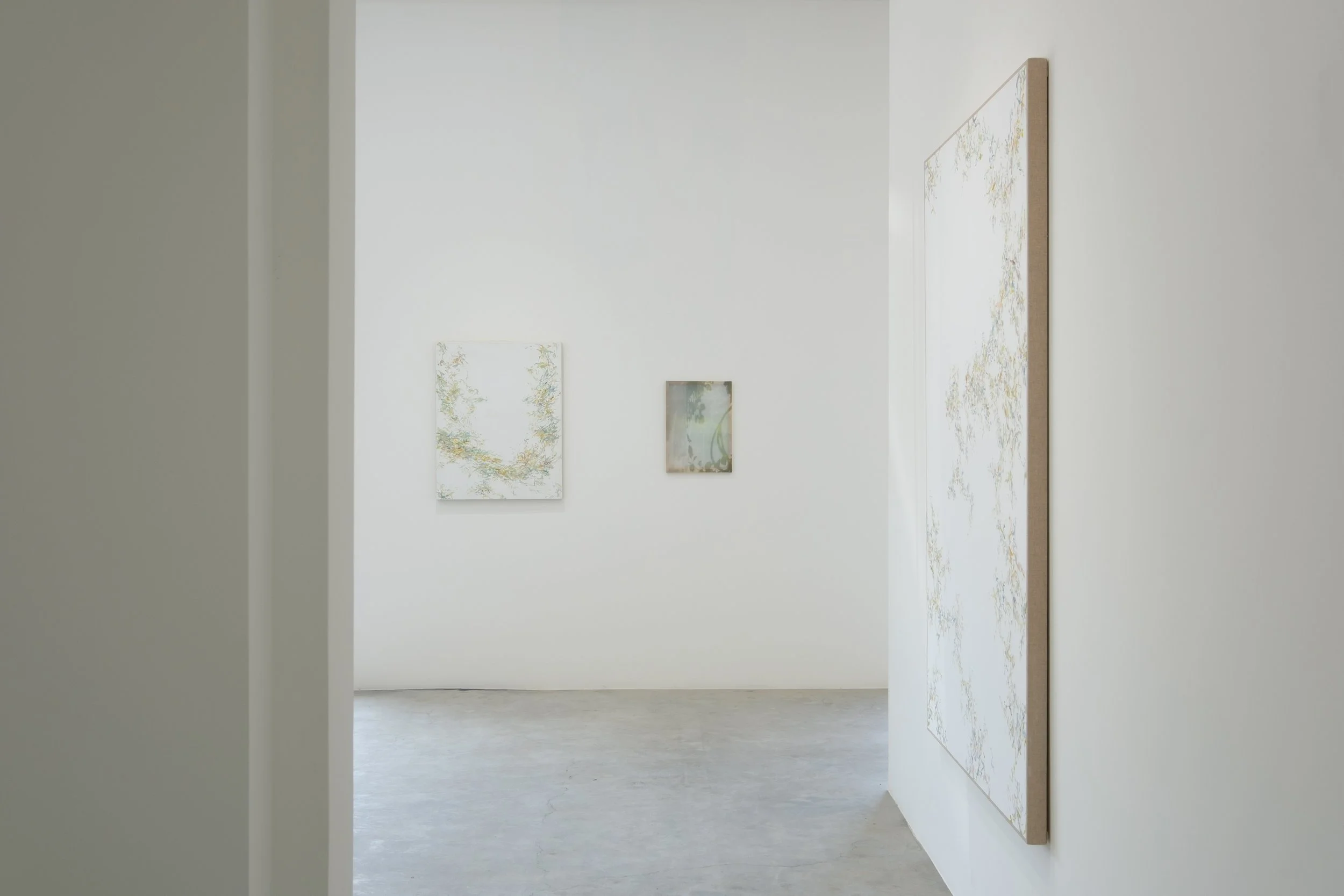ss space space is pleased to present its inaugural exhibition, ’Moving Metaphors: The Genesis of a Space’, a show of works by Seungwon Jung, Shirley Tse, Emily Wang, and Yu-Tzu Peng. These four artists collectively explore the potential of materials, body, spirituality, and temporal transference amidst diverse entities through their distinctive artistic practices. The exhibition examines the unique ways the artists have addressed the notion of ‘movement’, depicting how different aspects connect and create tensions and interactions. It further explores how new narratives are engendered within this dynamic process.
These four artists’ creations vividly portray the essence of ‘movement’ in various ways. Whether the metamorphosis of materials, the invocation of temporal dimensions, the exploration and appropriation of concepts, or the fluidity arising from the interaction between the body and space, shifts in locations and rhythmic patterns composed by varying speeds enrich our understanding of beings, and they present a dynamic and ever-changing manifestation. ‘Moving Metaphors: The Genesis of a Space’ takes the broad theme of our relationship to movement and features over ten diverse works, encompassing sculptures, paintings, and photography. Through the interplay and narratives created by these works, the exhibition invites viewers to embark on a gradual journey towards understanding the metaphorical spaces concealed within the works, gradually advancing towards the realm of meaning construction to reshape their comprehension of the world.
In Shirley Tse’s sculptures, she frequently deconstructs the world of synthetic objects imbued with paradoxical meanings and constructs models in which differences might come together. Spanning 21 years, the two showcased works, Polytocous Series: Flower SML (2002) and Quantum Shirley Series: Crates from Paradise (2023), are transformed from two-dimensional materials to three-dimensional space and collectively allude to the implicit messages inherent in the processes of manufacturing, labour, and dissemination. They further reflect the artist’s personal experiences and surrounding environment.
Seungwon Jung’s sculptures and installations use the interplay of material transformations to make imperceptible and intangible surfaces tangible within expansive natural space. Jung seeks to foster a dialogue between digital language and craftsmanship by intertwining weaving, photography, and sculpture. Embracing dualities and contradictions in her choice of materials, she depicts the potential coexistence of heterogeneous entities.
In artistic creations, imagination is considered the point of departure for movement. Viewers often embark on a journey drawing on their lived experiences when engaging with artworks, allowing the work to spark their imagination. The works guide viewers’ perceptual experiences and gradually lead them towards the space where meaning and narrative are generated. Consequently, observing a work involves venturing into new territories, creating potential spaces for imaginative shifts and facilitating narrative innovation.
In Emily Wang’s painting and photography, the pictorial space takes shape through the abstract structure of figurative imagery, creating dynamic energy and emotional tension. In this exhibition, the artist delves further into the spatial relationships formed by pairing a large-scale, double-sided abstract painting, Magnitude 11 (Take 1) – Birth of Venus (2019–2020), with a photo-based work, No. 4, The Forest Within (2023). Through contemplative and prolonged observation, viewers are invited to uncover the potential metaphors within the works and engage with the ever-nurturing sensual spirit and vitality they encapsulate.
Yu-Tzu Peng presents a new series of paintings that reflect the artist’s continuing exploration of pictorial space. By deconstructing images from the real world, she considers painting as a space for visual and spiritual contemplation. Peng often uses fragmented brushstrokes and lines and engages with the interplay between painted and unpainted areas to evoke an implicit tension. This constructs a space of profound and abundant imagination within the picture plane. Her works unveil a unique realm that facilitates self-transformation in the creative process and leads to its continuation, transforming painting into a dynamic form of existence.
Situated between imagination and creation and perception and meaning, the artists open up a dynamic space through their works—an open field awaiting the infusion of imagination. However, this space is never stagnant; it functions as a medium for transcending elsewhere. In the current era of redefined territories, boundaries, rules, and definitions, these artistic creations collectively imply a fundamental question: How can we create a clear vision in the contemporary ever-shifting and evolving context and explore and define our own space in the world?
ss space space非常期待和開心能與大家分享我們於新空間的第一檔展覽「移動的隱喻:一個空間的生成」。此次聯展匯聚了藝術家 鄭丞媛(Seungwon Jung)、謝淑妮(Shirley Tse)、王慶蘋(Emily Wang)及彭禹慈(Yu-Tzu Peng)的作品,四位藝術家皆透過各自的創作在眾多差異的事物之中,共同探索物質、身體、精神和時空維度轉移的可能,並從中描述事物如何透過「移動」與他者交織並產生張力,進而在此動態的互動過程中發展出新的敘事。
在這四位藝術家的創作中可以看見許多「移動」的軌跡,無論是媒材上的轉化、時間維度的召喚、概念上的清空與挪用,亦或是身體與空間互動中所產生的流動等。這些移動過程中所歷經的場所變化、速度的快慢輕重所譜寫的韻律,皆豐富了過往對事物的理解,呈現其嶄新且動態的存在樣貌。本次展覽以「移動的隱喻:一個空間的生成」為題,展出包含雕塑、繪畫與攝影等十餘件作品,期待透過這些作品的相互對話與敘事,邀請觀者向著作品所隱喻的空間前行,一步步前往意義構築的場域,並在流動的過程中重塑對世界的理解。
藝術家謝淑妮(Shirley Tse)擅長透過解構人造物的世界,並從中結合矛盾或相異的物質,在文字、雕塑與材料的隱喻之間,發展出其獨特的創作敘事。此次展出的兩件作品 Polytocous Series: Flower SML (2002) 與 Quantum Shirley Series: Crates from Paradise (2023) 橫跨了21年的創作歷程,作品將創作媒材從平面轉譯成立體雕塑的同時,也共同指涉了其在製造、勞動與傳播的移轉過程中所隱含的訊息,以及回應創作者自身與所在環境的狀態。
另一位藝術家鄭丞媛(Seungwon Jung)也透過媒材之間的轉換,在深邃浩瀚的自然空間中,將不可見且無形的表面轉化為可感知的形態。藝術家結合編織品、攝影與雕塑,試圖在數位語言與傳統工藝間開啟對話,並在看似相異的媒材中探索並擁抱事物中存在的雙重與矛盾,描繪異質的事物共存的可能。在藝術創作中,想像是位移的起點。在閱讀作品時,觀者經常從現實經驗出發,讓作品引發的想像帶領其感知經驗,逐步前往屬於閱讀者意義與敘事生成的場域。因此,閱讀作品本身便包含了移往他處的痕跡,也創造出可能偏移的其他想像空間,促使敘事創新得以在世界中呈現。
王慶蘋的創作實踐致力於將抽象與有機的象徵形態結合,嘗試在圖像空間中引發視覺空間結構的交互震盪,藉此創造作品動能與情緒張力。此次展覽藝術家更嘗試透過大尺幅的雙面繪畫 No. 51, Magnitude 11 (Take 1) – Birth of Venus (2019-2020) 與複合媒材的攝影作品 No. 4, The Forest Within (2023) 在展場中所形成的空間關係,讓觀者在慢觀且不斷流轉的視線中,持續發現作品的潛在隱喻,與其所不斷孕育出的感性精神與生命力。
在圖像空間的探索中,藝術家彭禹慈將繪畫作為視覺與精神思維的媒合空間。透過解構現實世界中的圖像,她用碎形的筆觸與線條,連同畫布中留白之處與所繪之處相互構成的隱性張力,在畫面中建構一種玄曖深邃卻富饒想像的秩序。彭禹慈的作品開啟了獨特的場域,讓其創作得以自我變形,並發展出自己的續篇,進而讓繪畫成為一種存在的動態形式。
藝術家在想像與創造之間、感知與意義之間,透過作品鑿開了一個動態的空間,一個等待想像傾注的開放場域,然而,此處從來就不是停駐的場所,而是通向他處的媒介。在當前許多地域、邊界、規則與定義被重新劃分之際,這些創作也似乎共同隱喻了關鍵的問題:我們如何在不斷移動與變化的當代語境中清晰眼前的視域,進而在世界之中探詢屬於自身的空間呢?
Artists
Curators










